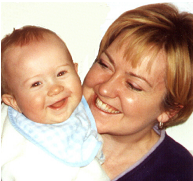THE CANADIAN SOCIETY FOR THE PREVENTION OF CRUELTY TO CHILDREN
The basic premise of the CSPCC is that the worst of all possible cruelties is to inflict permanent emotional damage on another human being.
Given the evidence that such permanent emotional damage can be inflicted relatively easy during the very early years of life, our concern is with ignorance of, or indifference to, the emotional needs of very young children.
By permanent emotional damage we do not mean only the psychological illnesses of adults which are recognized as having their roots in early childhood. More importantly we mean the less recognizable and measurable deficient capacities for trust, empathy and affection.
To prevent such permanent emotional damage, the CSPCC is working toward higher status for parenting, greater support for parents with young children, increased emphasis on trust, empathy and affection in the adult world, and vastly improved preparation for parenthood.
By preparation for parenthood we mean that, prior to the age when conception is a possibility, both girls and boys should understand and appreciate:
- The permanent emotional damage that can result if the emotional needs of a young child are not met.
- The ways in which our appetite for consumer goods and services can become so insatiable by the time children are conceived, that satisfaction of consumer cravings and status and careerism based on these are easily rationalized as having a higher priority than nurturing ones children.
- That remaining childless may be the most sensible option, given ones interests and priorities.
- That any parent who feels inadequate or inferior is handicapped in providing optimal child nurture; thus, prevailing patterns of arbitrary male dominance threaten the well being of children, while mutual support and respect between parents enhance their child-rearing abilities.
- The meaning and significance of empathic parenting, namely: Be willing and able "to put oneself into one's child's shoes " in order to correctly identify the child's feelings, and being willing and able to behave toward the child in ways which take those feelings into account.
- That empathic parenting takes an enormous amount of time and energy and fuly involves both parents in a co-operative, sharing way.
- The importance of a father who is able to relate to his wife and child in a non-arbitrary, co-operative, empathic way.
- The wrong reasons for having children: proving one's masculinity or femininity, making or patching up a marriage or relationship, having a son and heir, having a weapon to use against the other parent, obtaining the love and affection one has been unable to get from the adult world, fulfilling a need to dominate and control.
- The permanent damage to the child that can result from poor nutrition, poor health, inadequate medical care, and substance abuse during pregnancy.
- The birthing practices which facilitate attachment, bonding and engrossment of babies, mothers and fathers.
- Up to date knowledge of early human development to the greatest extent possible for their age.
- The importance of breast-feeding and child-led weaning.
- The potential dangers inherent in the care of infants and toddlers by changing, shared, hired substitutes.
- The greatly increased difficulty in meeting the emotional needs of infants and toddlers who are closely spaced.
- The need for a network of relatives, friends and organizations such as playgroups, which enable parents to share with other mothers and fathers the stresses, the hard work and the joys that are an inevitable part of the empathic care of infants and toddlers.
